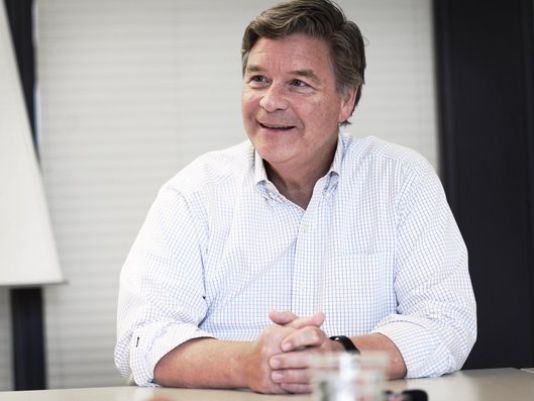
By: Jerry Schnoor, Press Citizen
Climate change is already here. Iowans face more frequent and severe storms, greater runoff and soil erosion, warmer nights, more humidity and mold. It is true that climate change also causes some good things like longer growing seasons, milder winters and more carbon dioxide for plants. However, overall, it is a huge negative, and it is costing us big time. As an example, the trifecta of storms — Harvey, Irma and Maria this past fall — will cost more than $195 billion, and recovery is not over yet.
Globally, ice is melting everywhere, the sea level is rising and coastal areas are inundated by storm surge. On the continents, dry areas are getting dryer and wet areas are getting wetter. Droughts will be of longer duration, while floods will become more frequent and intense. In Iowa, we possess a humid continental climate, projected to receive more intense precipitation, but potentially punctuated by drought as well.
Intense rainfall events affect water quality, too, eroding more soil and fertilizers into our waters. Such impacts undermine Iowa’s Nutrient Reduction Strategy because the harder we work to install grass strips, cover crops, and bioreactors, the more severe storms will carry soil, pesticides and fertilizers away. Our own Iowa Watershed Approach is a community-led antidote to this scenario.
Climate change is here, and things are going to get much worse in the absence of action to curb greenhouse gas emissions. That brings us to solutions. What can we do as communities, cities, states, businesses and global citizens to prevent and adapt to this threatening future?
First, we can act individually to save energy, preserve the environment and avoid fossil fuel emissions. Next we can join a groundswell responding to climate change. For example, the U.S. Climate Mayors organization comprises 20 percent of the U.S. population and more than 400 cities including Iowa City, Dubuque, Des Moines and Fairfield. They are dedicated to achieving the Paris Climate Agreement goals and creating a vibrant 21st century clean-energy economy.
At the state level, the U.S. Climate Alliance leads the charge. Sixteen states, including Minnesota, Colorado, North Carolina and California, represent 40 percent of U.S. GDP — they have created 13 million clean energy jobs. The Climate Alliance is a testament to the proposition that climate and energy leadership promotes good jobs and economic growth. Julie Cerqueira, executive director of the U.S. Climate Alliance, said “Iowa’s long history of leadership in clean energy, in particular the successful deployment of wind power at scale, makes its membership in the U.S. Climate Alliance both logical and valuable." Iowa should join!
Business and industries are stepping up to the plate, too. This month, global shipping companies agreed with the International Maritime Organization to a 50 percent reduction in greenhouse gas emissions by 2050. You may be surprised to learn that emissions from shipping rival those of Germany, the sixth-largest emitter in the world as a national entity. And a coalition of international companies, the World Business Council for Sustainable Development, has taken the lead on novel low carbon technologies — businesses working together to support the swift implementation of the Paris Climate Agreement.
Iowa is a poster child for the tremendous benefits achievable from a proactive stance on responding to climate change. Our leadership in biofuels and wind energy has created thousands of high quality, good-paying jobs, while reducing greenhouse gas emissions and attracting businesses like data centers to Iowa. More opportunities abound. Distributed solar power, energy efficiency, workforce development, expanding our power grid and improving weatherization of old housing stock promises a bright future. We can prosper while doing our part to stop climate change.
I invite you to attend the April 25 WorldCanvass program when University of Iowa colleagues and I will share current research and discuss policy approaches to environmental challenges in the U.S. and globally. “Climate Science and the Environment — What’s Next?” is a free, public program held from 5:30-7 p.m. at MERGE, 136 S. Dubuque St., in Iowa City. Come early to enjoy a catered reception from 5-5:30 p.m.
Jerry Schnoor is a professor in civil and environmental engineering and co-director of the Center for Global and Regional Environmental Research at the University of Iowa.